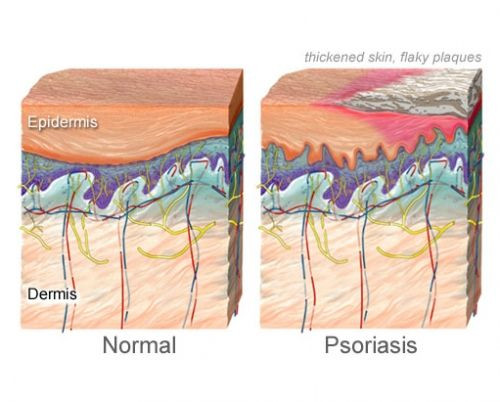Severe psoriasis linked to major adverse cardiovascular events

Psoriasis is a common inflammatory skin disease, and if severe, has been demonstrated to be a risk factor for cardiovascular (CV) disease. However, the degree to which psoriasis is associated with major adverse cardiac events (MACE), such as heart attack, stroke, and cardiovascular death has not been defined. Now, new research from the University of Pennsylvania School of Medicine has revealed an increased incidence of MACE in patients with severe psoriasis.
In a cohort study analyzing data from a general practice research database, Penn researchers reviewed the case histories of over 3,600 patients with severe psoriasis and 14,300 controls. Lead author Nehal N. Mehta, MD, MSCE, Director of Inflammatory Risk in Penn's Preventive Cardiology program, and colleagues found that patients with severe psoriasis have a 53 percent increased incidence of MACE compared to the general population. They also found that having a diagnosed case of severe psoriasis confers an additional ten-year risk of 6 percent on MACE. The study results were reported at the 2011 American College of Cardiology meeting in New Orleans.
Previous work from Dr. Mehta and senior author Joel M. Gelfand, MD, MSCE, from the Department of Dermatology at Penn found that the risk of death from cardiovascular disease increased by 57 percent in patients with severe psoriasis. In addition, the relative risk of death from cardiovascular disease was even higher in younger patients, who were as young as age 40.
Dr. Mehta and colleagues conclude that this new estimate of increased ten-year MACE may warrant more aggressive strategies for treatment of cardiovascular risk factors in patients with psoriasis.



























